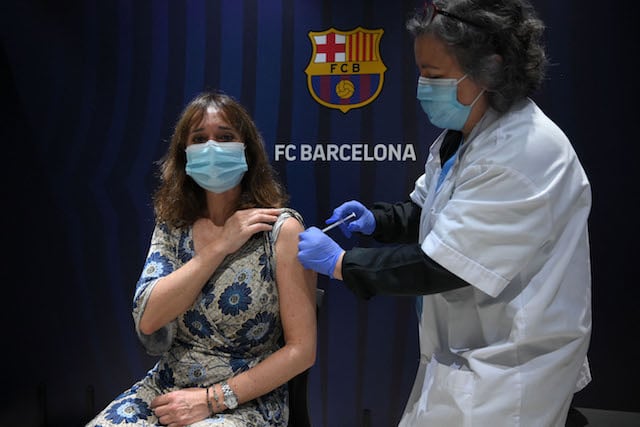While it is expected that most of Spain’s autonomous regions (comunidades autónomas) will begin vaccinating those in their 40s during the month of June, four regions have gone further and have announced dates for the inoculation of those in their 30s too.
The first region to announce the immunisation of the 30 to 39-year-old group was Castilla-La Mancha, whose president Emiliano García-Page, was optimistic and specified that the vaccination of this group could start in the last week of June.
The region of Valencia have also said that they would begin to vaccinate people between 30 and 40 years old in July. President of the Generalitat, Ximo Puig confirmed this during a speech in the regional courts. It is also expected that the inoculation of those under 40 in the region will start from June 17th.
Those in these age groups hoping to get vaccinated in Valencia must make sure they register with their local health centre and apply for a SIP card. If you’re not registered with the public system and have private healthcare instead, the Valencian authorities have said that you still need to register at your local health centre and will be given a provisional health card to cover the period of vaccination.
READ MORE: What foreigners in Spain’s Valencia region need to know about getting the Covid vaccine
In Catalonia, the deputy director-general of Health Promotion, Carmen Cabezas said in an interview with Rac1 last week that those under 40 “could begin to be vaccinated in about 3 or 4 weeks” after having already started those in the age bracket of 40 to 49. She also added that the call could be “more generalised – from 18 to 39 years old”.
Those in Catalonia who already have their padrón certificate or are registered and have their CAP cards can apply online here.
READ MORE: What residents in Catalonia need to know about getting the Covid vaccine
In Extremadura, the second vice president and councilor of Health and Social Services of the Board, José María Vergeles has said that it could be possible “to begin vaccinating those in the age group of 39 to 30 in June”, according to statements collected by Europa Press.
More recently, Andalusia has also announced dates for vaccinating the younger age groups. The Councilor for Health and Families of the Board, Jesús Aguirre has confirmed that on July 7th the inoculation for those under the age of 40 will begin, once the population between 41 and 59 years old has been completed, during the month of June.
To register for the vaccine in Andalusia please follow this link. More information on the vaccine campaign can be found here.
READ MORE: Andalusia’s foreigners will get the vaccine, but how should they register?
Spain has so far given 26.1 million vaccines with 8.8 million fully vaccinated. 94.8 percent of all citizens over the age of 60 have received at least one jab.



 Please whitelist us to continue reading.
Please whitelist us to continue reading.
Member comments